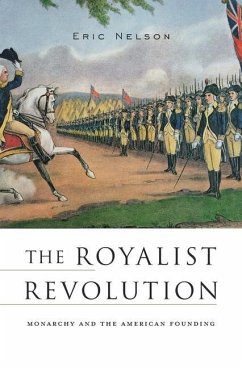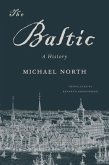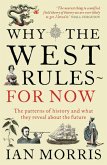The founding fathers were rebels against the British Parliament, Eric Nelson argues, not the Crown. As a result of their labors, the 1787 Constitution assigned its new president far more power than any British monarch had wielded for 100 years. On one side of the Atlantic were kings without monarchy; on the other, monarchy without kings.
[A] brilliant and provocative analysis of the American Revolution... [Nelson] departs radically from his predecessors, arguing that it was admiration for royal prerogative power and belief in the virtues of a strong executive, both derived from seventeenth-century precedents, that fostered the rebellion against Britain and shaped the Constitution of the new American republic. His Revolution comes out of a royalist, not a parliamentarian, tradition. The Royalist Revolution is a book of great intellectual power: it is not just challenging but erudite (many of its abundant footnotes are brilliant short essays in their own right), and, though densely argued, is written with admirable clarity and fairness.
-- John Brewer New York Review of Books
The Royalist Revolution is a thought-provoking book, and Nelson is to be commended for reviving discussion of the complex ideology of the American Revolution. He reminds us that there was a spectrum of opinion even among the most ardent patriots and a deep British influence on the political institutions of the new country.
-- Andrew O'Shaughnessy Wall Street Journal
By the 1760s, parliament was imposing taxes on the colonists without their consent. Patriot leaders like John Adams expressed longing for George III to restrain the legislative tyranny of parliament. Generations of historians have largely regarded such statements as insincere rhetorical ploys-as arguments of convenience lodged and then quickly forgotten. Nelson makes a convincing case that in so doing, historians have overlooked an important part of the political philosophy that impelled the American Revolution.
-- Yoni Appelbaum The Atlantic
A scrupulous archaeology of American revolutionary thought.
-- Thomas Meaney The Nation
[Nelson's] argument will alternately surprise, shock, distress, and outrage many scholars, but it will also help to reshape a debate about the origins of the presidency, a topic that gravely matters as we agonize over the role of the post-9/11 executive in our impassioned and impasse-ridden politics... Eric Nelson's real genius is to force us to rethink both the origins and substance of critical political ideas... We will be wrestling with the implications of its argument for some time.
-- Jack N. Rakove Weekly Standard
Eric Nelson's new book advances the royalist reinterpretation of 18th-century America a crucial stage further... The Royalist Revolution...provide[s] a powerful double-barrelled challenge to historiographical orthodoxy. Nelson argues persuasively that the Revolution-at least in the beginning-was not a revolt against the supposed tyrant George III, but a rebellion against the claims of the British Parliament.
-- Colin Kidd London Review of Books
For anyone interested in the founding of the American Republic it is indispensable reading.
-- Jeremy Jennings Standpoint
Brilliantly argued... The Royalist Revolution is surely one of the most important works on Revolutionary era political thought to appear in many years.
-- John W. Compton American Political Thought
Nelson has given us a text of monumental importance. It is clear that historians will not be able to ignore this significant contribution... The Royalist Revolution will make many of us think very hard about what we thought we knew.
-- Matthew Dziennik Canadian Journal of History
Eric Nelson's provocative new work, The Royalist Revolution: Monarchy and the American Founding, represents an important contribution to our understanding of the framing of the Article II powers of the Presidency... Nelson is to be congratulated for his elegant and illuminating treatment of this important body of patriot revolutionary thought. He provides a persuasive rebuttal to the conventional wisdom... Nelson's discussion of the debate over the executive at Philadelphia will be of inestimable value to scholars of constitutional law and history. For it is here that he maps with great depth and subtlety the way that royal authority informed the Framers' understanding of America's chief magistracy. And as scholars and statesmen alike continue to debate the scope of the President's discretionary authority, the ideas that helped shape the powers of the executive in 1787 become all the more relevant today.
-- Tara Helfman Harvard Law Review
Nelson eloquently underlines the significance of his reinterpretation for American historians. The Royalist Revolution challenges readers to rethink the conventional narrative about the revolt against tyranny, the republicanism of the Founding Fathers, and the surprising extension of executive power in 1787.
-- Hannah Weiss Muller Journal of British Studies
Sure to fire up an old debate, Nelson's book constitutes an important contribution to the literature on early American constitutionalism.
-- Publishers Weekly
The Royalist Revolution is the most challenging and original account of the constitutional history of the American Revolution in generations. With admirable lucidity and impeccable scholarship, Eric Nelson traces the ideological origins of colonial revolt and the prerogatives of a powerful Presidency back to their roots in seventeenth-century British arguments against Parliament. In light of his findings, the Founding Era will never look quite the same again.
-- David Armitage, author of The Declaration of Independence: A Global History
The unseen author of American independence, it turns out, was King George III, who chose to remain a parliamentary monarch, and declined (if he ever understood) the American invitation to become an emperor ruling through several independent parliaments. He obliged Americans to pursue a democratic empire and rethink the role of monarchy in their republic. Eric Nelson's brilliant revision displays both American and British history in their exceptionalisms.
-- J.G.A. Pocock
The Royalist Revolution is a provocative and important contribution to our never-ending interest in the invention of American constitutionalism. It dares the reader to rethink basic premises of American constitutional history. Carefully researched, ingeniously argued, this book will have a significant and controversial impact on scholarship.
-- Jack Rakove, Stanford University
-- John Brewer New York Review of Books
The Royalist Revolution is a thought-provoking book, and Nelson is to be commended for reviving discussion of the complex ideology of the American Revolution. He reminds us that there was a spectrum of opinion even among the most ardent patriots and a deep British influence on the political institutions of the new country.
-- Andrew O'Shaughnessy Wall Street Journal
By the 1760s, parliament was imposing taxes on the colonists without their consent. Patriot leaders like John Adams expressed longing for George III to restrain the legislative tyranny of parliament. Generations of historians have largely regarded such statements as insincere rhetorical ploys-as arguments of convenience lodged and then quickly forgotten. Nelson makes a convincing case that in so doing, historians have overlooked an important part of the political philosophy that impelled the American Revolution.
-- Yoni Appelbaum The Atlantic
A scrupulous archaeology of American revolutionary thought.
-- Thomas Meaney The Nation
[Nelson's] argument will alternately surprise, shock, distress, and outrage many scholars, but it will also help to reshape a debate about the origins of the presidency, a topic that gravely matters as we agonize over the role of the post-9/11 executive in our impassioned and impasse-ridden politics... Eric Nelson's real genius is to force us to rethink both the origins and substance of critical political ideas... We will be wrestling with the implications of its argument for some time.
-- Jack N. Rakove Weekly Standard
Eric Nelson's new book advances the royalist reinterpretation of 18th-century America a crucial stage further... The Royalist Revolution...provide[s] a powerful double-barrelled challenge to historiographical orthodoxy. Nelson argues persuasively that the Revolution-at least in the beginning-was not a revolt against the supposed tyrant George III, but a rebellion against the claims of the British Parliament.
-- Colin Kidd London Review of Books
For anyone interested in the founding of the American Republic it is indispensable reading.
-- Jeremy Jennings Standpoint
Brilliantly argued... The Royalist Revolution is surely one of the most important works on Revolutionary era political thought to appear in many years.
-- John W. Compton American Political Thought
Nelson has given us a text of monumental importance. It is clear that historians will not be able to ignore this significant contribution... The Royalist Revolution will make many of us think very hard about what we thought we knew.
-- Matthew Dziennik Canadian Journal of History
Eric Nelson's provocative new work, The Royalist Revolution: Monarchy and the American Founding, represents an important contribution to our understanding of the framing of the Article II powers of the Presidency... Nelson is to be congratulated for his elegant and illuminating treatment of this important body of patriot revolutionary thought. He provides a persuasive rebuttal to the conventional wisdom... Nelson's discussion of the debate over the executive at Philadelphia will be of inestimable value to scholars of constitutional law and history. For it is here that he maps with great depth and subtlety the way that royal authority informed the Framers' understanding of America's chief magistracy. And as scholars and statesmen alike continue to debate the scope of the President's discretionary authority, the ideas that helped shape the powers of the executive in 1787 become all the more relevant today.
-- Tara Helfman Harvard Law Review
Nelson eloquently underlines the significance of his reinterpretation for American historians. The Royalist Revolution challenges readers to rethink the conventional narrative about the revolt against tyranny, the republicanism of the Founding Fathers, and the surprising extension of executive power in 1787.
-- Hannah Weiss Muller Journal of British Studies
Sure to fire up an old debate, Nelson's book constitutes an important contribution to the literature on early American constitutionalism.
-- Publishers Weekly
The Royalist Revolution is the most challenging and original account of the constitutional history of the American Revolution in generations. With admirable lucidity and impeccable scholarship, Eric Nelson traces the ideological origins of colonial revolt and the prerogatives of a powerful Presidency back to their roots in seventeenth-century British arguments against Parliament. In light of his findings, the Founding Era will never look quite the same again.
-- David Armitage, author of The Declaration of Independence: A Global History
The unseen author of American independence, it turns out, was King George III, who chose to remain a parliamentary monarch, and declined (if he ever understood) the American invitation to become an emperor ruling through several independent parliaments. He obliged Americans to pursue a democratic empire and rethink the role of monarchy in their republic. Eric Nelson's brilliant revision displays both American and British history in their exceptionalisms.
-- J.G.A. Pocock
The Royalist Revolution is a provocative and important contribution to our never-ending interest in the invention of American constitutionalism. It dares the reader to rethink basic premises of American constitutional history. Carefully researched, ingeniously argued, this book will have a significant and controversial impact on scholarship.
-- Jack Rakove, Stanford University







